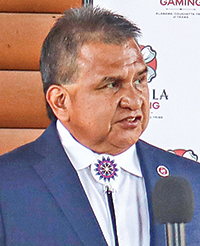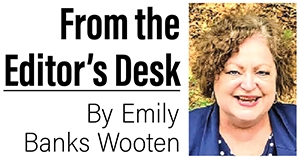Corporations, government never the answer
 By Tony Farkas
By Tony Farkas
This email address is being protected from spambots. You need JavaScript enabled to view it.
One of the hallmarks of a weak argument is deflection, in that when a problem is identified, attention is redirected toward some other bugaboo — real or perceived — that may not be of any consequence, but so much can be made of it that discussion of the original problem is forgotten.
For instance, there has been quite a big fight in Washington, D.C., over increasing the debt ceiling and the possibility of the nation defaulting on its ever-increasing, massive debt.
The nation, however, is embroiled in other issues, such as book-banning, gay bashing, Trump, acceptance of trans people, Trump, Tucker Carlson, Trump, gun control, climate and even Republicans and their hate for all of humanity, society and puppies.
With any of these issues, including the one about debt, is the idea that someone else caused this problem, and the government must step in and bring whatever to ground.
Aside from the problem that government is not, nor should be, the answer, there’s also the mischaracterization of the issues themselves. What the government is responsible for, though, is its overspending problem, caused by the mischaracterized bugaboos that seem important, but not government important.
That’s a pretty important distinction, by the way; what the government can and can’t do. Ultimately, since we’ve abdicated our — meaning personal — responsibility in holding our elected officials responsible, they have in turned made our jobs theirs, and through the force of law, become arbiters of society.
This has happened for so long, that it’s become the accepted form, and that it is a scarier problem than debt. Once an elected body assumes the mantle of control, it keeps it, and then broadens it, mostly without the benefit of lawmaking and instead using regulation. The recent ruling against the EPA, which slapped down the agency’s overreach into controlling navigable waters by classifying any standing or running water, including underground.
A second tactic used to shut down arguments and opposition is transference, in which one group that practices a certain tactic accuses its opposition of practicing that very same tactic. The most glaring example of this is in race relations; claiming white people are inherently racist, and demonizing them, not understanding that this is racist.
Christianity gets a bad rap, too, as I pointed out recently, but gets labeled as something akin to a hate group for not accepting certain ideas, such as transgenderism.
Forcing a group of people to forfeit their beliefs to accept current zeitgeist is anathema, yet Christianity is constantly bombarded with such demands. Freedom of speech or religion doesn’t come into play, and the government, who is asked to protect subclasses of society, is asked to not protect Christians, since the mantle of unacceptable beliefs has been transferred to them.
Debt has nothing to do with any side issue, such as AI, capitalism, gay pride month, tire tread wear patterns, tea in any country, or climate. Debt has everything to do with government overspending on things like a surfeit of unconstitutional government agencies, unnecessary and frankly illegal regulations (that are passed by said unconstitutional agencies), bloated bureaucratic requirements (try applying for a grant and see what happens), overstaffed programs and departments, subsidies, foreign aid, baseline budgeting — you see where this is going.
It’s been said so much that it should be an adage, but to fix a problem, you must first identify the problem exactly, and then face it, work it, and as a friend and psychology professor once said, bring it to ground. Grasping at straws or straw-man arguments only shows that solving the problem is not a priority.
As I’ve said numerous times, too, government is never the answer. We as parents, residents, citizens and frankly the government (of the people, by the people, for the people, remember?), must reclaim our responsibility for our own destiny.
- Hits: 862




 By Ricky Sylestine
By Ricky Sylestine